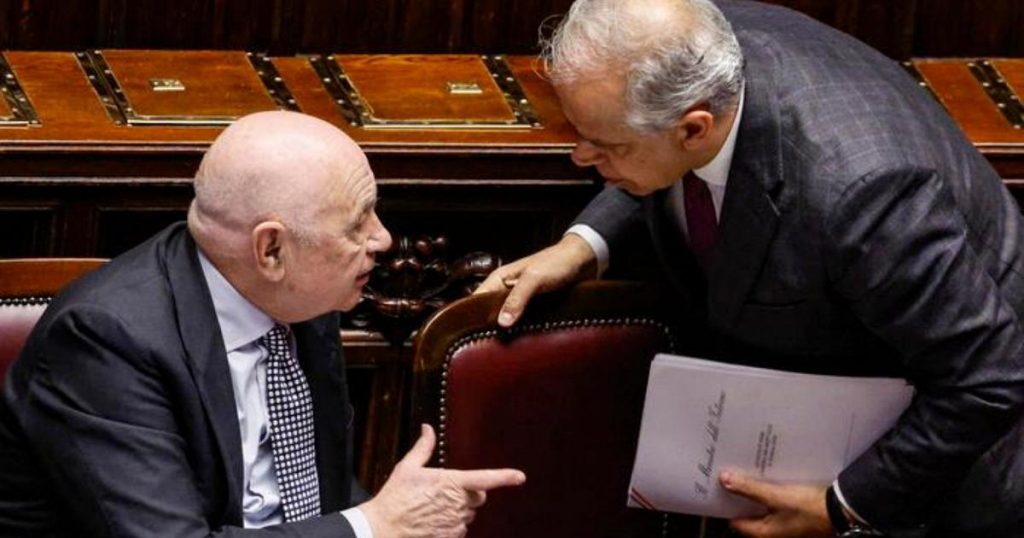The Government’s Defense of Almasri’s Release: A Detailed Analysis
Introduction: Context and Government Stance
The release of Libyan individual Almasri, alleged to have been a torturer, has sparked significant political and legal controversy in Italy. The government, led by Prime Minister Giorgia Meloni, has vigorously defended its decision to release Almasri, framing it as a necessary measure to uphold national security and public order. This stance has been met with fierce opposition, both domestically and internationally, particularly from the International Criminal Court (ICC) and certain Italian magistrates. The situation has highlighted deep political divisions, with parliamentary debates often descending into chaos, reflecting the heightened tensions between the ruling majority and the opposition.
Technical Critique of ICC Handling
At the heart of the government’s defense is a detailed technical critique of the ICC’s handling of Almasri’s case. Justice Minister Carlo Nordio has emphasized procedural flaws, pointing out that the ICC’s arrest warrant was not properly translated into English and included attachments in Arabic, rendering it legally null. Nordio argued that the warrant lacked consistency, with conclusions that did not align with the motivational part, leading to significant uncertainties. For instance, the warrant cited crimes starting from March 2015, while the preamble referred to February 2011, when Muammar Gaddafi was still in power. These discrepancies, according to Nordio, undermine the validity of the ICC’s decision and justify the government’s actions in releasing Almasri.
Political Turmoil in Parliament
The political landscape has been further complicated by the tense atmosphere in Parliament, where debates on Almasri’s release have been marked by protests and heated exchanges. Prime Minister Meloni’s absence from key parliamentary discussions has drawn criticism, with opposition leaders accusing her of evading accountability. The opposition has been relentless in its demands for Meloni to appear before Parliament, arguing that her absence constitutes an institutional cowardice. Meanwhile, the government has presented a united front, with full benches in both the Chamber and Senate, even in Meloni’s absence, signaling their resolve to withstand the opposition’s onslaught.
Opposition’s Demand for Transparency
The opposition has been vocal in its criticism of the government’s handling of the Almasri case, demanding greater transparency and accountability. Leaders from the Democratic Party (PD) and the Five Star Movement (M5S) have accused the government of freeing a known torturer, with some even suggesting that Justice Minister Nordio acted as a defender of Almasri rather than a impartial official. The opposition has also highlighted the moral and legal implications of releasing an individual accused of heinous crimes, questioning the government’s priorities and commitment to justice. Their calls for an urgent parliamentary briefing by Meloni have intensifies, framing her absence as a failure of leadership.
Government’s Response and Legal Repercussions
In response to the criticism, Interior Minister Matteo Piantedosi has reaffirmed the government’s position, stating that Almasri’s expulsion was necessary to protect national security and public order. He denied any undue pressure or blackmail from external entities, emphasizing that the decision was made solely in the interest of the state. However, the government’s stance has not been without legal consequences, as both Nordio and Piantedosi are now under investigation by the Rome prosecutor. Nordio has dismissed the investigation, stating that being listed as a suspect in such cases is routine, but the opposition has interpreted this as a clear indication of governmental overreach.
Ongoing Implications and Conclusion
The Almasri case has far-reaching implications for Italy’s political and legal landscape. The government’s defense of its actions has been rooted in procedural technicalities and national security concerns, while the opposition has focused on moral and legal accountability. As the investigation into Nordio and Piantedosi continues, the political tension shows no signs of abating. The case has also brought to the fore broader debates about the role of the judiciary, the executive, and theICC in international justice. The outcome of this saga will not only shape the future of Italy’s judicial reforms but also influence its standing in the international community.












